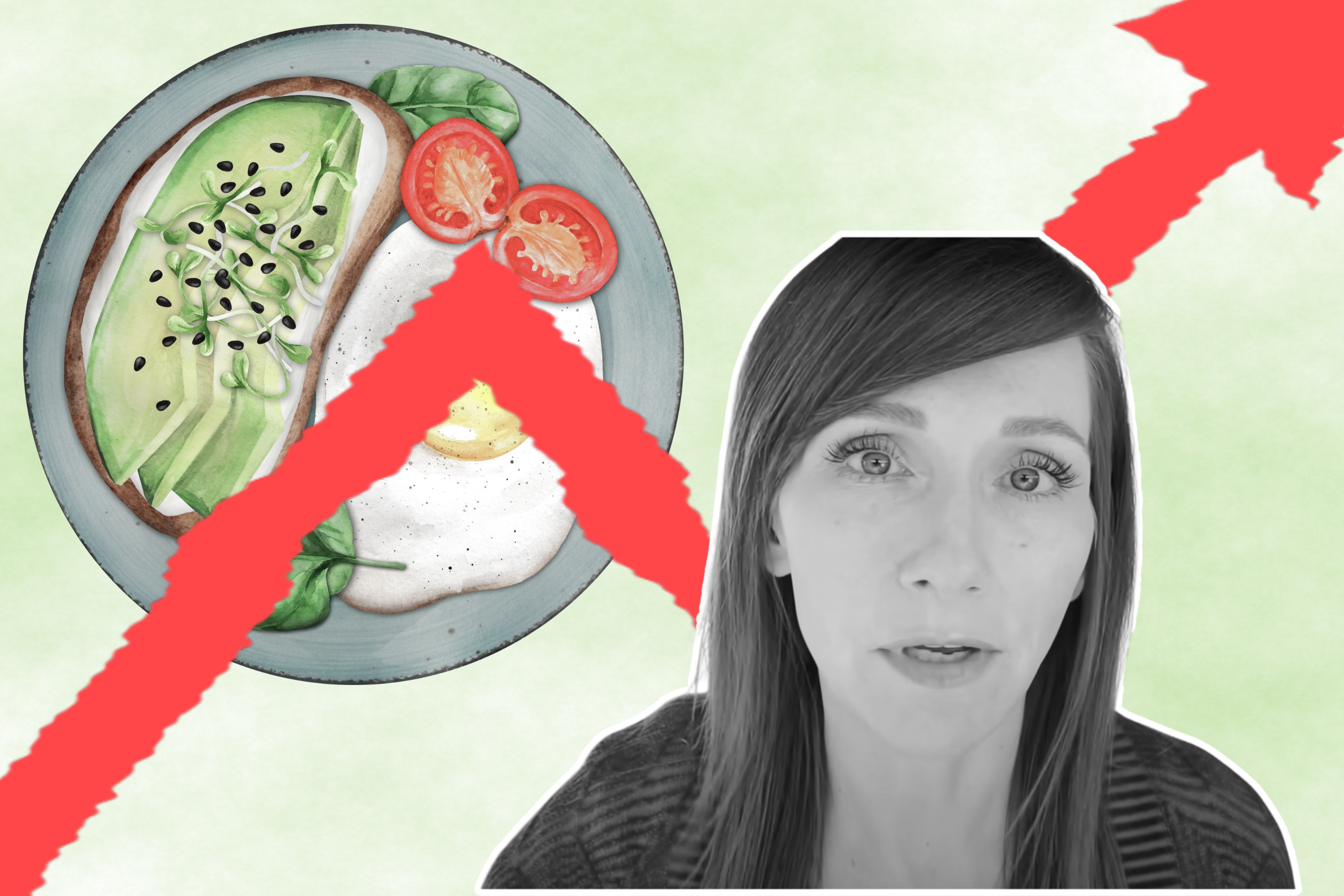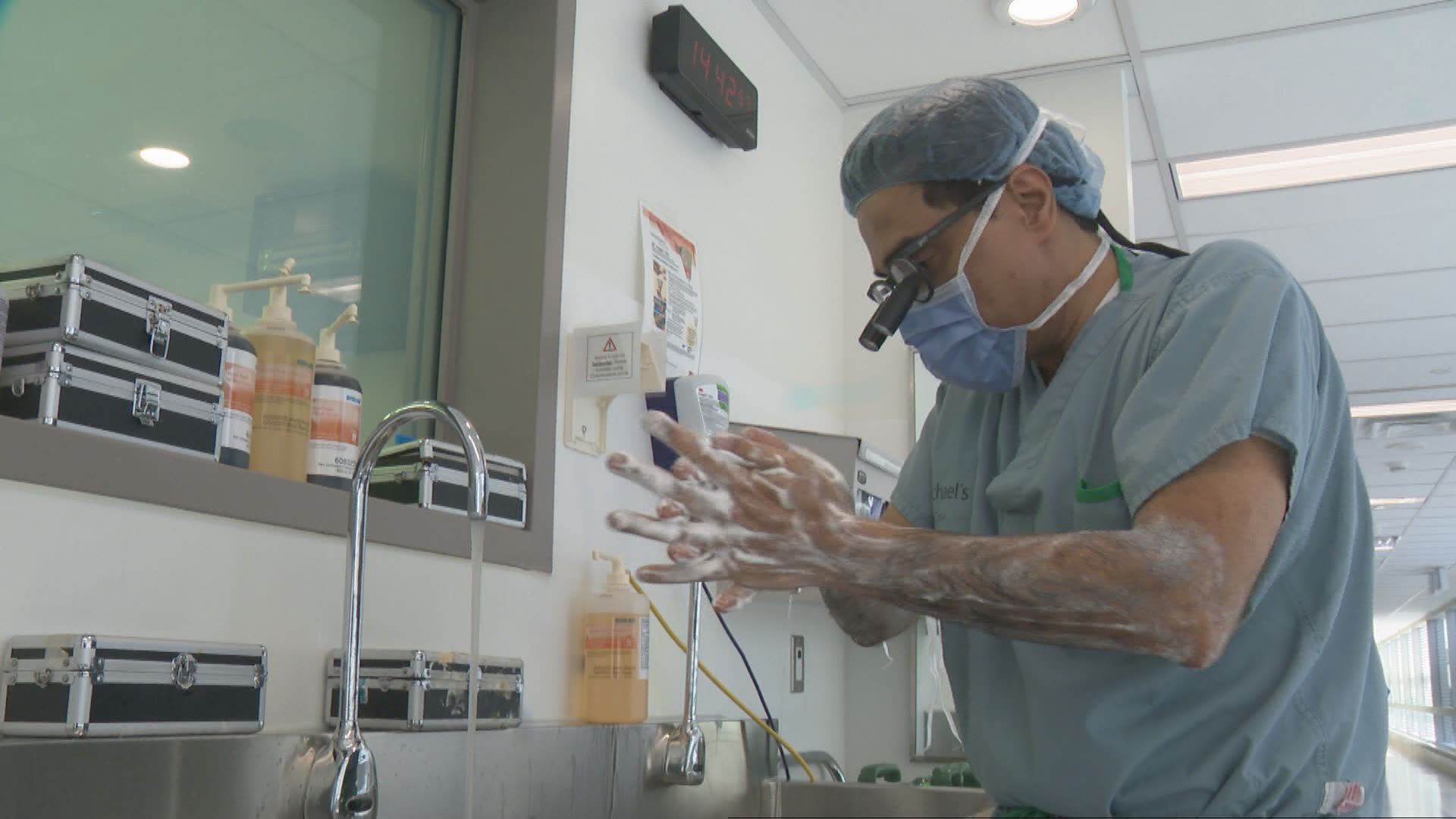
KETO CRACKED THE WEIGHT LOSS CODE FOR ME—UNTIL I HAD TO QUIT
I have been overweight pretty much my entire life. It started at age eight, but back then it was called "husky".
Over the decades, I tried all the diets and every new fad that came along—shots, drinks, pills, shakes—but I couldn't find anything that sustainably worked for me.
Everything worked for a little while, but as soon as I went back to the standard American diet, all the weight came back, plus more. By 2006, I was 31 years old, classified as morbidly obese, and weighing in at 330lbs.
I remember my doctor telling me the odds were against me. It would be hard to lose the amount of weight that I needed to through diet and exercise alone. So I made a hasty decision to have gastric bypass surgery, or RNY.
This weight loss surgery involves rerouting a lot of your digestive system and cutting your stomach down to the size of a grape, forcing you to eat only small amounts of food so you lose a drastic amount of weight very quickly.
The years following my surgery were traumatic. Back then, I was not educated on what to expect. The internet was newer, so researching it wasn't easy, and I wasn't informed that my stomach would stretch, or that if I wasn't careful with my diet I could potentially gain back every pound.
I'm an all-or-nothing kind of person. I can become a little obsessive over things, so when I had my weight loss surgery, I followed my doctor's orders to the letter and lost all the weight—156lbs.
I kept most of the weight off over the next decade, but not because I was being healthy about it.
Thirteen years after my surgery, in 2019, I started gaining weight back, around 70lbs. I was back up to 232lbs and a tight size 16. My absolutely amazing daughter, Karrigan, had started the keto diet in January of that year. Over the next two months, I saw her drop a ton of weight.
So, in March, that's when I started my journey with keto, which is a diet that restricts the intake of carbohydrates so that your body burns its fat stores for energy instead of sugars. It wasn't easy; no lifestyle change is, especially in the beginning.
But over time, I figured out how to make keto work for me. I managed to lose every single pound I had gained back, and then some. I got to a lower weight with keto than I ever had with weight loss surgery.
Keto was what I had always been searching for. It was my answer to losing the weight and keeping it off. I felt like I'd finally cracked the code, hacked the system where my body was now fat-adapted and running on ketones.
I had more energy, I slept better, my face finally cleared up. I had battled with cystic acne my entire life, and let's not forget about the huge weight loss. That's how it all started. Everything was running smoothly. I was at the top of my game. I had never felt better.
Life was great—until it wasn't.
In September 2021 I noticed something was off. I just wasn't feeling normal. I still had a ton of energy. I was able to go, go, go, but I could eat tons of food, and I was dropping massive amounts of weight.
I just knew in my head, and could feel in my body, that something was off.
I went to the doctor and had some labs drawn. When I got the blood work back, I noticed that my fasting blood glucose was at 300mg/dl, and I knew that wasn't possible. Something wasn't right.
I received a phone call from the nurse telling me that I was a type 2 diabetic. I remember that phone call like it was yesterday. I told her: "Do not put that in my chart. I reject that diagnosis. I'm getting a second opinion."
When I went in to get the second opinion, they had already gone over my lab work, and I remember the nurse practitioner looking at me and saying: "You are the walking definition of type 1 diabetes."
So, at 47 years old, I was diagnosed as an insulin-dependent diabetic, meaning my pancreas is not functioning, and it no longer produces the insulin I need so that my blood sugar can be controlled. I will always, for the rest of my life, inject insulin.
The past two years have been the hardest in my life.
I have felt like a complete and total failure because I can't control my blood sugar, no matter what I eat, what I do, or how hard I try. My blood sugar is constantly up and down, and up and down. I have even tried the carnivore diet.
If I consume zero carbs, I still end up having a blood sugar spike.
At my last endocrinologist appointment in August, I got some answers as to why I'm having such a hard time. It turns out I am sensitive to insulin, and I am also sensitive to food.
It all comes back around full circle to the fact that I had gastric bypass surgery. I absorb things differently.
I will always have these ups and downs. The blood sugar spikes make me physically feel horrible: Headaches, fatigue, sometimes even nausea. But it's the blood sugar lows, when it goes down so quickly—that's the problem. Those are life-threatening.
And this gets to the heart of why I no longer follow keto. When my blood sugar drops so quickly, and oddly enough, it's usually at 3:00 a.m., I must consume sugar.
Sugar and keto are not friends, but I have to bring my blood sugar up so that I don't pass out, go into a diabetic coma, or possibly even die. This daily consumption of sugar and carbs has knocked me out of ketosis.
I define keto as being fat-adapted. You are burning ketones; you're in ketosis. I realize you could talk to a hundred people, and you're probably going to get a hundred different definitions, explanations, versions of keto.
I don't define keto as a food. I hate it when someone says "that's not keto".
If you're keeping your carb count low enough and you're burning ketones, you're fat-adapted, you're doing keto. It doesn't matter what you eat. But for me, I'm not in ketosis, so I'm not doing keto.
I'm now on a low-carb diet, and my plan is to stay on a low-carb diet. It is sustainable for me. Not only is it sustainable, but it has to be. As a type 1 diabetic, if I consume copious amounts of carbs, then I need to inject more insulin.
But insulin doesn't really agree with me. The high carbs would give me a massive blood sugar spike; the insulin would give me that quick drop, and there goes that vicious cycle all over again.
So I plan on doing a low-carb diet forever—and thankfully, I enjoy it.
Kristi Davis runs a YouTube channel dedicated to a low-carb lifestyle.
All views expressed are the author's own.
Do you have a unique experience or personal story to share? Email the My Turn team at [email protected].
Related Articles
- I Began Walking 20,000 Steps a Day—the Changes I Felt Amazed Me
- Woman Claims 'Dirty Keto Lifestyle' Helped Her Shed 90lbs In A Year
- I Lost Weight and Restored My Health by Taking Baby Steps
- I Lost Weight by 10K Steps, Calorie Counting and Daily Weigh-ins
- The Best Walking Pads of 2024, According to Personal Trainers
- I Tried Victoria Beckham's Strict Diet
- Man Discovers How His Neurodiverse Wife Falls Asleep, Loses It in Response
- American Who Tried "All the Diets" Reveals How She Lost 50lbs in Six Months
